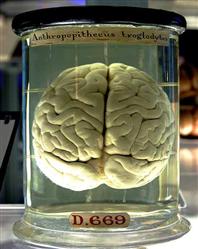Thanks to Jillygirl having a nosie about on the internet, she has found the following article which talks about why smokers lose the ability to focus when quitting smoking;
One of the most common fears from people who quit smoking is the loss of the ability to concentrate. Is it true? Why does it happen? How long is it going to last?
In the article Quit Smoking – Surviving the Second Day Traps, I exposed quite graphically how it was for me when I quit. Back then I couldn’t join 3 word together and compose a phrase. And yet, here I am today, writing an entire article in a foreign language (my native language is Portuguese). The most important thing to have in mind when you worry about the weird fogginess feeling when you quit smoking is that it won’t last forever.
There are three major reasons why you are going to lose the focus control when you quit smoking, and understanding them is the first step to bypass that obstacle.
NICOTINE: THE BRAIN FUEL
As smokers, we belie that when we smoke, the thoughts get clearer and faster. That’s actually a lie. It may have happened in the first few times you smoked, but addiction and substance tolerance grow rapidly. The first time your brain had contact with the neurotransmitter nicotine, it started to grow receptors just for it, becoming fat and dependent. Just a few times after your first smoke, you weren’t smoking to think faster and clearer; you were smoking just to think as fast and as clear as you did before that first cigarette.
That is the sad reality. Smoking, we grew a lazy brain. Happily, after a couple weeks you quit smoking, those extra neuroreceptors will become inactive, and the brain will work again without it.
THINKING ABOUT CIGARETTES
Another obvious reason for losing the focus when you quit smoking, is that all you can think about is smoking, consuming cognitive space which you could use to work, talk or even just drive.
The low level of nicotine will trigger the biofeedback mechanism alerting you that the stock of this most precious substance is under advisable levels, or so will say the addiction inside you. It’s like when you are hungry and all you can think about is lasagna. The absence of nicotine will overflow the mind of the most reliable nicotine dispenser it knows: cigarettes.
It will be worse in the first 72 hours, that is the time that the body takes to flush away all the nicotine. After that you will keep thinking of cigarettes quite often, but those thoughts won’t be so consuming and overwhelming.
THE CONDITIONING
Of course, the Pavlov Conditioning in you won’t help. The pairing you made linking smoking with every ordinary event in your life, such as smoking when drinking beer, smoking when happy, smoking when sad, smoking to induce bowel movements… All these pairings will cost you.
The first time you do one of those things and don’t smoke, the feeling will be of an incomplete job. The whole situating won’t feel real, and part of the fogginess in your mind will be the sensation of things not working as they were supposed to. How is the happiness of your son graduating be real if you don’t have a cigarette hanging in your mouth to legitimate it?
The good news is that the conditioning will dissolve in just a few times you repeat the behavior and don’t smoke. In fact, you can control that whole process just by inducing yourself the situations which would release the craving.
The reality is that when you quit smoking, you will lose focus for some time; something around 3 days to 2 weeks, but the fogginess will go away after that period. Go back smoking because you can’t concentrate is just a lousy excuse for relapse, as will be all the excuses. Conjure the willpower in you, give yourself time heal, and body and the brain will do the rest.
The full article and details of the person who put it together can be found on the following link;
